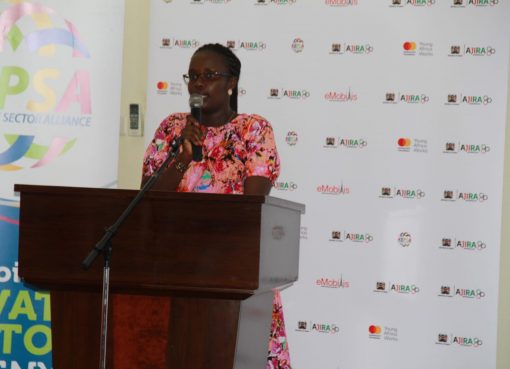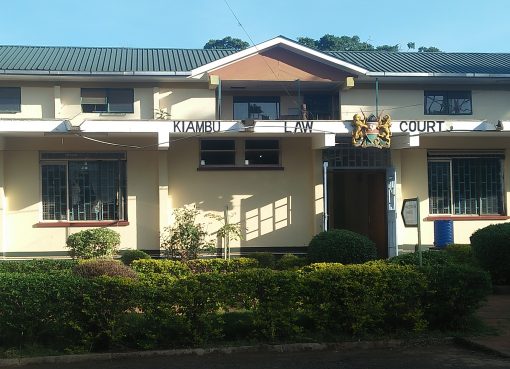Sister Stellamaris Wambui says her worst working day is when she fails to persuade a person hooked on drugs to give their life a better shot.
Being the overseer of the Ihururu Rehabilitation and Treatment Centre in Nyeri, Sister Wambui says it’s very traumatic seeing an addict turn a deaf ear to pleas from both family and friends, on the need for them to reform.
She nevertheless says since the Center threw its doors open to people addicted to alcohol and substance abuse last year, eight patients previously hooked onto drugs have already been discharged from the facility.
Sister Wambui says it is such memories that give her the greatest joy once she retires to the convent after a day’s work.
Perhaps this explains why Reinhold Niebuhr’s 1932 Serenity Prayer, stands quite conspicuous among the many messages that you find pasted on her office walls.
“My worst day at work is when I fail to salvage a person already bogged down in drugs or alcohol due to his obstinacy. It breaks my heart when I go to sleep with the full knowledge that help was so near for a desperate person yet so far away. It is such experiences that rob me of sleep,” she told KNA when we visited the facility which is situated at Ihururu Trading Center.
Sister Wambui says since the health facility was opened, it has admitted a total of 76 male patients to date.
She says the process of admission follows globally accepted best health practices that demand those seeking admission pass an assessment criterion.
“Most of the patients we receive here fall into three categories. The first two are for those who are either brought here by their parents or chiefs and police officers after their conditions become a security threat in the community. We also have those who come here out of their own volition and want to extricate themselves from the mess,” she says.
Once an assessment has been done, the facility gives the mode of treatment according to the extent of an individual’s health status.
For those whose conditions are deemed mild, the 18-strong staff recommend admission or arrange for clinical visits to the patient’s home on designated days.
Once admitted, a patient undergoes a 90-day therapy where various forms of therapies which include individual and group therapies are administered.
Spiritual therapy is also roped into the schedule as part of taking the patient along the road to recovery.
Sister Wambui admits that the problem of drug addiction is a ticking time bomb and one that needs tackling with speed to avert losing an entire generation.
“Drug addiction and alcoholism is an epidemic that needs urgent attention before it wipes out an entire generation in this country. Those already caught-up in this web should be viewed as patients who need treatment just like those suffering from diabetes, cancer, or even hypertension. Families sell their property to cater for the treatment of their loved ones once they fall sick. Addiction in whichever form is also a disease that needs the same intervention,” she explains.
To make the facility as friendly as possible, the counseling psychologists often remind the patients their main reason for being there is to help them recover and turn over a new page in their lives.
At the moment the ages of those in session range from 21 years to 55 years with the majority of them falling between the 25-38 age brackets.
Cases of patients sneaking out of the facility (though rare) do happen, especially for those brought there against their will.
“One of the things we do after admitting a patient is to inform them that we have his best interest at heart. This is important since most of those who were brought here happen to be victims of circumstances. Some of the things that push them into drugs include broken relationships, societal abuse, and loss of jobs, situations which they feel unable to cope with. Therefore, when they come here, we often try as much as possible to erase that past which hurts them,” she says.
Sister Wambui however says many people are ignorant when it comes to matters of drug and addiction and mental illness.
While Ihururu Center’s core mandate is to help salvage those hooked on alcoholism and substance abuse, some families bring patients whose condition require psychiatric treatment.
It calls for much explanation to convince such families that the best route of treatment for their loved ones is a hospital where they can be admitted to an asylum ward.
“Most of our people do not distinguish between persons requiring psychological counseling and those in need of psychiatric treatment. A number of families bring their relatives who are mentally unwell to us hoping we are in a position to help them. But a rehabilitation facility is different from a psychiatric hospital. Mentally challenged patients must first be taken to the hospital and thereafter be referred to us after recovery for therapy sessions in case their earlier health problem arose out of using drugs,” explains the officer.
To enable needy families to access treatment at the center, plans are underway to ensure those with National Hospital Insurance Fund (NHIF) cards can also be attended to.
For admission to the rehab, one has to spend a total of Sh90,000 for a three-month stay.
A patient can however seek for extension in case he fails to recover fully after the recommended time of stay.
Sister Wambui says the amount being charged at the County-run institution is quite low when compared with privately-run facilities operating in the country.
“Our charges are quite friendly compared to what other facilities charge to offer. Most rehab centers ask from Sh60,000 to Sh100,000 for each month of admission which is way high compared to what we ask here,” she states.
Sister Wambui has also taken note of the surging cases of people taking to alcohol and substance abuse in the country; a trend she says has been on a steady climb within the last decade.
While a number of factors are to blame for the challenge, the counsellor says a large part of patients are victims of societal pressure.
She argues that unlike in the past when the community was a close-knit unit, liberalism has reduced society to Charles Darwin’s maxim of survival for the fittest.
The end result is that those who feel dejected by society or their loved ones, seek solace in alcoholism or drugs.
There is still the problem of training children which she says has largely failed to equip boys and girls with the necessary mettle to confront emerging life challenges.
“When we were growing up, boys and girls were trained in the ‘school of hard knocks’ and therefore life’s challenges found us prepared. But the kind of training being given to our children today is too elementary for the crises of the 21st century. This is one of the things pushing some of our young men and women into drugs and sometimes into suicide since they just can’t cope,” she points out.
But challenges facing humanity notwithstanding, Sister Wambui claims one of the single most threats facing men and women is when they take life too seriously and fail to inject a dose of humour in their everyday lives.
Her parting advice for society is to retrace its steps decades back to a world where mirth and laughter were part and parcel of a day’s routine. No wonder the Good Book in Proverbs 17:22 prescribes laughter as the best medicine.
A UN Office on Drugs and Crime (UNODC) document titled World Drug Report 2023 warned of converging crises as illicit drug markets continue to expand.
Globally, over 296 million people were hooked on drugs in 2021, an increase of 23 percent over the preceding decade.
In addition, the number of people who suffer from drug use disorders has skyrocketed to 39.5 million, a 45 percent increase over 10 years, according to UNODC.
The report says demand for treating drug-related disorders remains largely unmet leaving millions of addicts to their fate.
Only one in five people suffering from drug-related disorders were on treatment for drug use in 2021, with widening disparities in access to treatment across regions.
In Africa, 70 percent of people in treatment are those under 35 years.
A 2022 report from the National Authority for the Campaign Against Drug and Alcohol Abuse (NACADA) put the number of people abusing drugs and alcoholism in the Mount Kenya region at 635,000.
This is nearly the same number of people who live in Nyeri County whose population is estimated at 700,000.
By Samuel Maina and Wangari Mwangi





